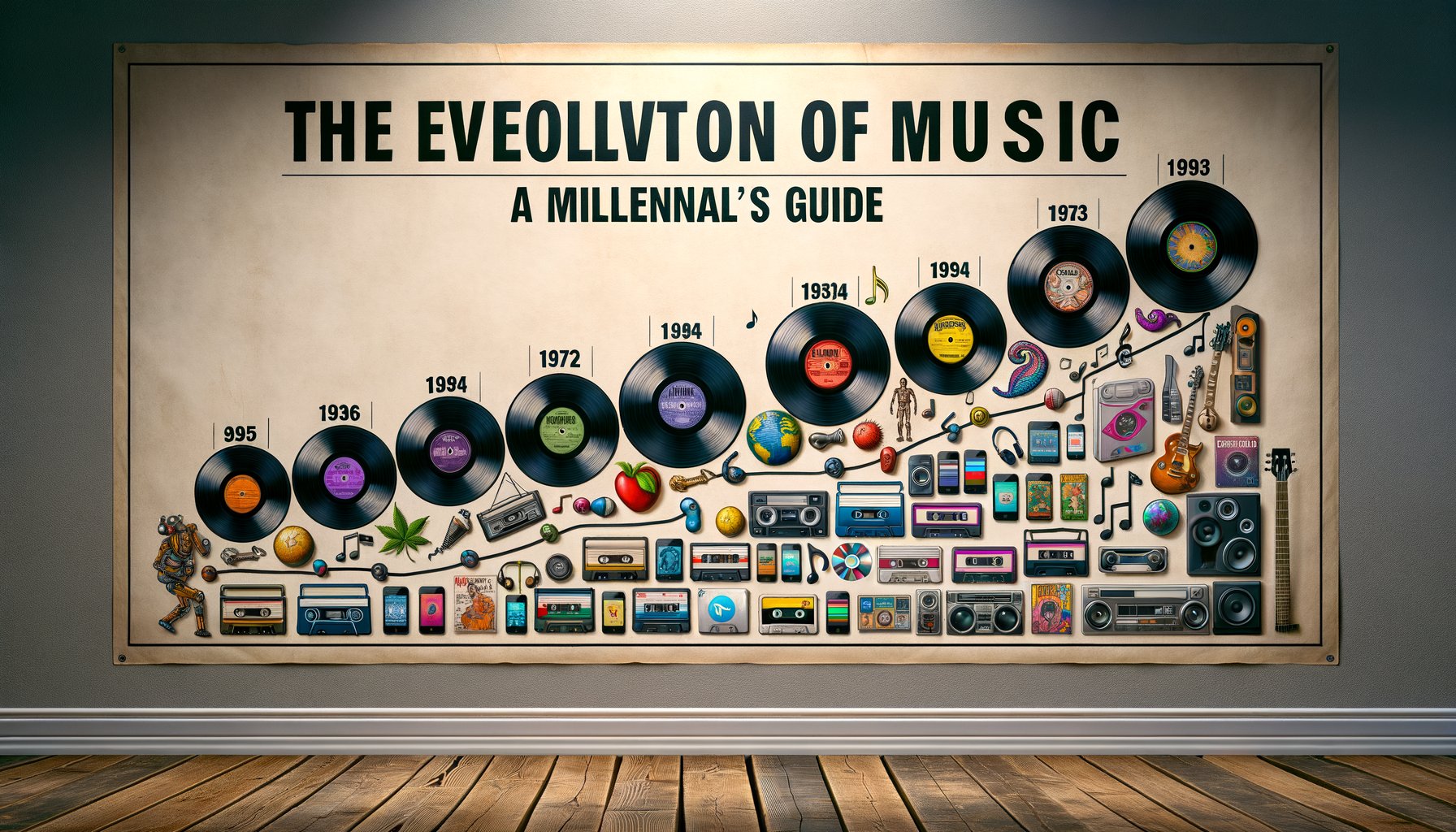Physical Address
304 North Cardinal St.
Dorchester Center, MA 02124
Physical Address
304 North Cardinal St.
Dorchester Center, MA 02124

Music, a universal language that transcends borders and cultures, has undergone significant transformations over the years. From the primal drum beats of our ancestors to the synthesised sounds of today’s electronic music, the evolution of music is a fascinating journey that mirrors societal changes and technological advancements.
The origins of music are as old as humanity itself. Archaeologists have discovered bone flutes dating back 40,000 years, suggesting that our prehistoric ancestors had an understanding and appreciation for melody and rhythm. The ancient civilisations of Egypt, Greece, Rome and India all had rich musical traditions, with instruments such as harps, lyres, flutes and drums.
With the advent of Christianity in Europe during the Middle Ages (500-1400 AD), music became an integral part of religious ceremonies. Gregorian chants were developed during this period. The Renaissance era (1400-1600 AD) saw a surge in musical creativity with polyphonic compositions gaining popularity.
The Baroque era (1600-1750 AD) ushered in a wave of complexity in musical composition. Composers like Johann Sebastian Bach and Antonio Vivaldi introduced intricate melodies and harmonies that shaped classical music.
The Classical era (1750-1820 AD) was marked by simplicity and elegance. This period gave us prodigies like Wolfgang Amadeus Mozart and Ludwig van Beethoven whose symphonies continue to captivate audiences worldwide.
The Romantic era (1800-1910 AD) was characterised by emotional expressionism in music. Composers like Franz Schubert, Richard Wagner, and Pyotr Ilyich Tchaikovsky created dramatic symphonies and operas that stirred the soul.
The 20th century witnessed a seismic shift in music styles. The birth of jazz in the early 1900s introduced improvisation to mainstream music. This was followed by the emergence of rock ‘n’ roll in the 1950s, symbolising rebellion and youth culture. Artists like Elvis Presley and The Beatles reshaped popular music with their innovative sounds.
Pop music emerged in the late 20th century as a blend of various genres such as rock, R&B, and electronic music. Pop icons like Michael Jackson, Madonna, and Prince dominated the charts with their catchy tunes and flamboyant performances.
The advent of digital technology has revolutionised how we create, distribute and consume music. Synthesisers and drum machines have given rise to electronic dance music (EDM) genres like house, techno, trance, dubstep etc.
With platforms like Spotify and Apple Music, we now have access to millions of songs at our fingertips. Social media platforms like YouTube have provided an avenue for independent artists to share their work with global audiences.
As we journey into the future, one thing is certain – music will continue to evolve. With advancements in artificial intelligence (AI), virtual reality (VR), augmented reality (AR), we are on the brink of experiencing music in ways we can hardly imagine today.
In this rapidly changing landscape of music evolution – from bone flutes to AI compositions – it’s crucial for us millennials to embrace these changes while appreciating our musical roots. Because just as it has in the past, music will continue to reflect the spirit of our times, connecting us across cultures and generations.